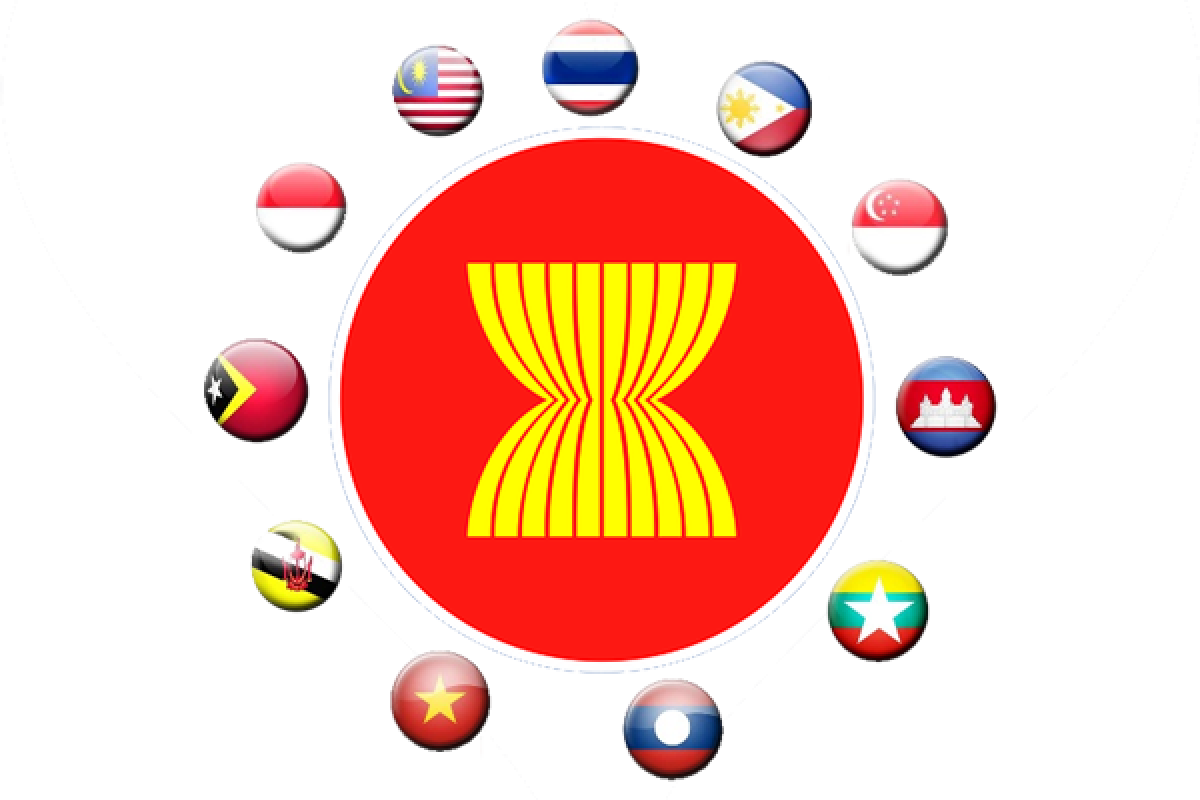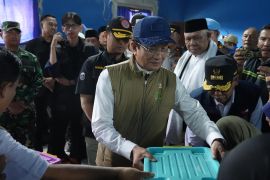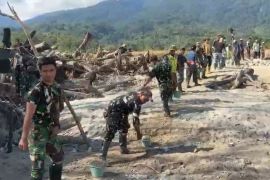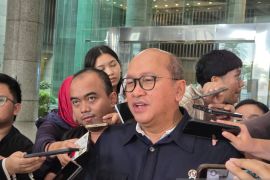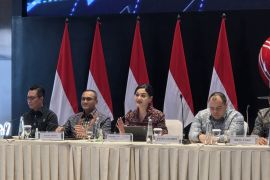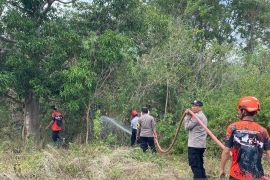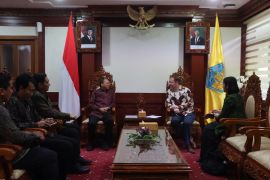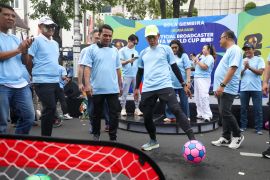The agreement was reached during the Special ASEAN Economic Ministers (AEM) Virtual Conference Meeting on COVID-19 Responses.
The meeting discussed the joint efforts taken by ASEAN countries to deal with the COVID-19 pandemic, and followed up on an agreement reached by the heads of states and governments of ASEAN in the Declaration of the Special ASEAN Summit on Coronavirus Disease 2019 and the previous ASEAN Economic Ministers (AEM) meeting, which produced the AEM's Statement on Strengthening ASEAN's Economic Resilience in Response to the Outbreak of COVID-19.
"Indonesia and the ASEAN economic ministers are committed to exploring mechanisms to maintain supply chain connectivity and ensure the smooth flow of trade in essential goods in the Southeast Asia region, particularly those related to handling the COVID-19 pandemic," Deputy Trade Minister Jerry Sambuaga said in a statement in Jakarta on Friday.
At the meeting, ASEAN economic ministers also agreed on the Hanoi Plan of Action on Strengthening the ASEAN Economic Cooperation and Supply Chain Connectivity in Response to the COVID-19 Pandemic, he added.
The agreement includes cooperation in enabling trade of important goods (food, medicines, medical equipment, and other related products), as well as assisting production of and improving access to COVID-19 medicines and vaccines through the strengthening of supply chain connectivity.
Related news: ASEAN Plus Three will weather COVID-19 crisis, Jokowi assures
Related news: ASEAN Plus Three solidarity has important message for world: minister
The Hanoi Plan of Action is expected to encourage ASEAN member states to be more proactive in implementing concrete steps, such as the use of Affixed Signature and Stamp (ASnS), maintain smooth trade flows amid social distancing policies, optimize ASEAN Single Window as a platform for exchanging trade administration documents, and increase use of digital technology and Industrial Revolution 4.0 in face of the new normal.
"The key to maintaining the production network and the flow of goods and services lies in the sincerity of all ASEAN countries to utilize information technology," the Vice Minister of Trade said.
At the meeting, ASEAN economic ministers also exchanged information and reported on best practices in economic policies of each country on overcoming the negative impact of the COVID-19 pandemic.
The ministers also welcomed the proposed cooperation from the ASEAN Business Advisory Council (ASEAN-BAC), which will be realized through the Joint Statement on COVID-19 by the ASEAN Business Advisory Council and the Joint Business Council (JBC) and Partner Sector Champions.
Governments and businesses in ASEAN are committed to working together to deal with the COVID-19 pandemic, including in efforts to mitigate the adverse impact of the pandemic in the social and economic fields.
Several business sectors in ASEAN have been negatively affected by the COVID-19 pandemic, including travel, essential goods and related supply chains, medical services, and digital tools.
The Vice Minister of Trade urged all countries to work together to arrest and stop the spread of COVID-19.
"The Indonesian government is prioritizing the protection of public health, while maintaining that the production and distribution chain of important goods, both domestically and abroad, continues to run smoothly," he concluded.
Related news: Jokowi calls on engineers to make ASEAN economy recession-proof
Related news: Indonesia's digital economy growth highest in ASEAN: Bekraf
Translator: Sella P, Azis Kurmala
Editor: Sri Haryati
Copyright © ANTARA 2020
